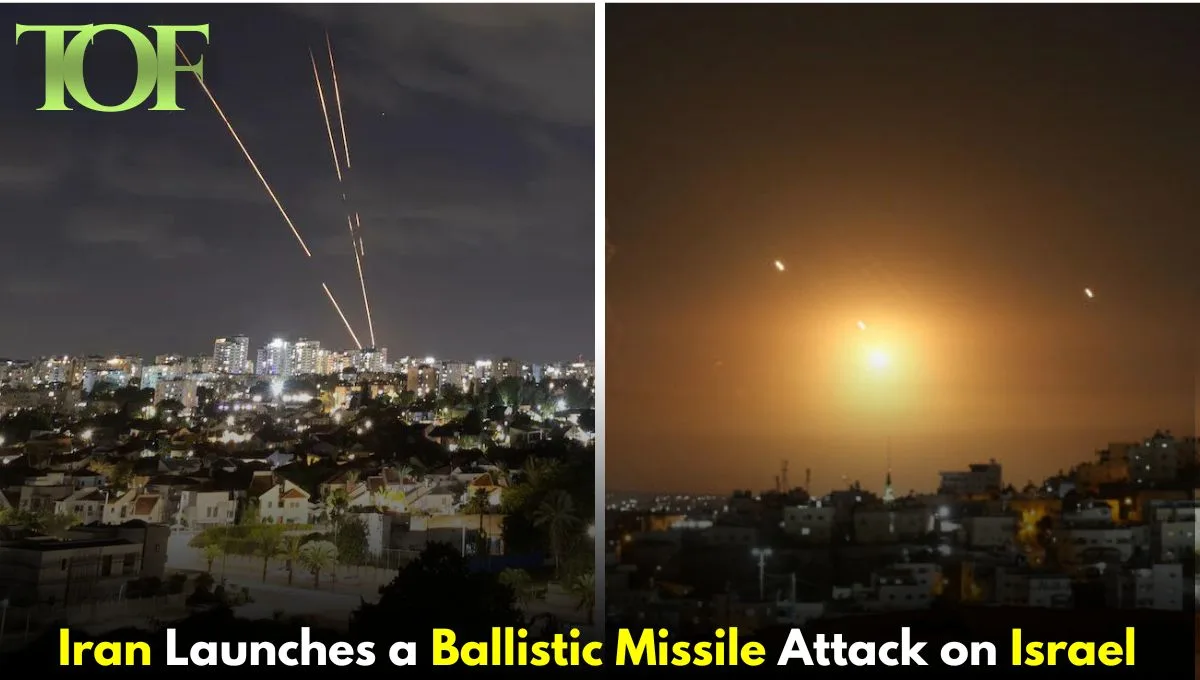Iran stepped up a serious escalation of hostilities with ballistic missiles against Israel Tuesday as it responds directly to continued military operations targeting Iran’s allies, including Hezbollah in Lebanon, and recent killings of key figures which include Hezbollah leader Hassan Nasrallah and Hamas leader Ismail Haniyeh.
As alarms shrieked through Israel, city residents fled on foot to shelters, and explosions hit Jerusalem and the Jordan River valley. News reports captured footage of reporters ducking for cover as the missile strikes began. Eyewitnesses said they saw missiles being intercepted in Jordan’s airspace with Israeli media estimating between 150 and 200 missiles were launched.
The Israeli military declared that the threat was over and that it was safe for citizens to emerge from shelters. Preliminary reports said two people were reported injured, and the injuries were minor, reportedly from shrapnel.
The missile attack is Iran’s second strike against Israel in the past two months after the April missile and drone attack launched following an Israeli airstrike against Iranian interests at the consulate in Damascus. In fact, the Israeli military officials have promised to retaliate with an underscore on their part that they will decide the time and place for their retaliation.
“This attack will have consequences. We have plans, and we will operate at the place and time we decide,” said Rear Admiral Daniel Hagari, an Israeli military spokesman.
The Iranian Revolutionary Guards framed the missile launch as a justified response to the killings of their allies, claiming it targeted the “heart of the occupied territories.” They threatened crushing attacks against Israel if it retaliated.
In the middle of those tensions, Iran’s Supreme Leader Ayatollah Ali Khamenei was reportedly authorized to launch the missile strikes, signaling that Iran is prepared for any possible retaliation.
The mission of Iran to the UN stated that the missile attack was a “legal, logical and legitimate response” to what Iran calls “terrorist acts” on the part of Israel. They have threatened to be seriously punished in case Israel becomes involved once again.
In the meantime, air traffic at Israel’s Ben Gurion Airport was suspended because of its safety protocols. The public warning had been issued by the Israeli military of a large-scale missile attack that was impending. It had asked civilians to seek shelter.
Missile strikes coincide with an Israeli ground offensive in Lebanon, described by Israeli officials as a limited operation but which has nonetheless evoked international concern. Fears of greater regional war are now mounting because Iran and Hezbollah, heavily backed by Tehran, threaten to respond aggressively to Israeli actions.
US President Joe Biden has vowed to stand with Israel, stating that America stands ready to defend it if Iran unleashes rocket attacks. The White House is on high alert; however, United Nations Secretary-General Antonio Guterres appealed for an immediate ceasefire before things get out of hand.
Deep implications do not have such high positions as being another location of war with the constant shadow that seems to prevail it on hostilities between Iran and Israel- that have escalated at very alarming levels. Humanitarian impacts on Lebanon run huge as mass casualties and displacements present the undeclared war as it unwinds all of which reflect a really entrenched cycle of violence that, unsurprisingly, continues to spiral out of control.
Read About Israel’s attack on Yemen
To Read More: Global News

